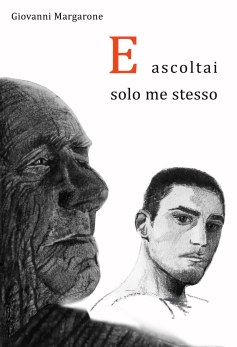E ASCOLTAI SOLO ME STESSO
REVIEW by Elisa Santucci
Introduction
A training novel, the beautiful Italian narrative that slowly turns into a training novel with the typical structure of the novels of the twentieth century. One to choose what to become and to be listening only to oneself.
Review
A man, a boy and the smallness of a seaside village in the south of France: Saintes-Maries-de-la Mer, in the late 60s of the last century. Few inhabitants, a church, a parish priest who will have an active part in history, a bar where the men of the village drink and play cards, prejudices and gossip without foundation represent the narrative place and essence of the novel.
Jacques, a boy like many who loves to study little, a paternal punishment that becomes the possibility for the boy to grow, mature and become an upright and empathetic man.
The author with a few strokes manages to perfectly trace the psychology and being of each character that we meet in this literary journey, even if they are secondary appearing in a scene, I use the word scene because the novel by Giovanni Margarone shows you the scenes and the interiority of the characters as frames of a film.
The narrow-mindedness and the closed-mindedness of a country strongly challenged by a boy who is little more than a teenager, distances himself from the place where he was born and raised, by his father, two women are the positive example, with their sweetness and freedom mentally guide this boy who is forming his personality: his mother and Josephine his first love.
The beautiful cover shows us an old man and a boy, recalling teenage readings such as the old man and the sea of Hemingway, and the special relationship that was built between grandfather and grandson, through life stories, these familiar habits now extinct in these times when everything burns quickly, were formative and confrontational for young people.
Michel Dupont, an elderly man of Spanish origins, a secondary protagonist who grows up throughout history and intersects with the life of the main protagonist. The meeting between the two is of fundamental importance for the life of both, through the story of Michel’s troubled life, the novel tackles a very current theme: the flight abroad to escape the horror of a ferocious dictatorship like the Francoist in Spain, the arrival in France where the foreigner has always been considered to be excluded from the social life of the country where he decides to stop. The meeting with Jacques is immediately based on empathy and affection, almost a grandfather, the boy manages to bring a breath of life into Michel’s lonely and sad life.
The acceptance of the different, the narrow-mindedness, the fear of what is not known on the one hand, a boy with the impetus of his youth that challenges everything and everyone on the other, after all the great changes have always occurred at the hands of young people still full of ideals and good feelings.
Conclusions
A compelling novel, quality narrative with attention to linguistics, but at the same time a story that does not allow you to detach yourself from its pages; tackles interesting issues in these dark times and full of prejudices, free attacks on those who do not know each other, the different frightens, those who arrive from another nation frighten us. A beautiful literary journey, for me a beautiful book is a journey. It certainly deserves to be counted among the beautiful Italian fiction. You can’t help reading it.




Rispondi